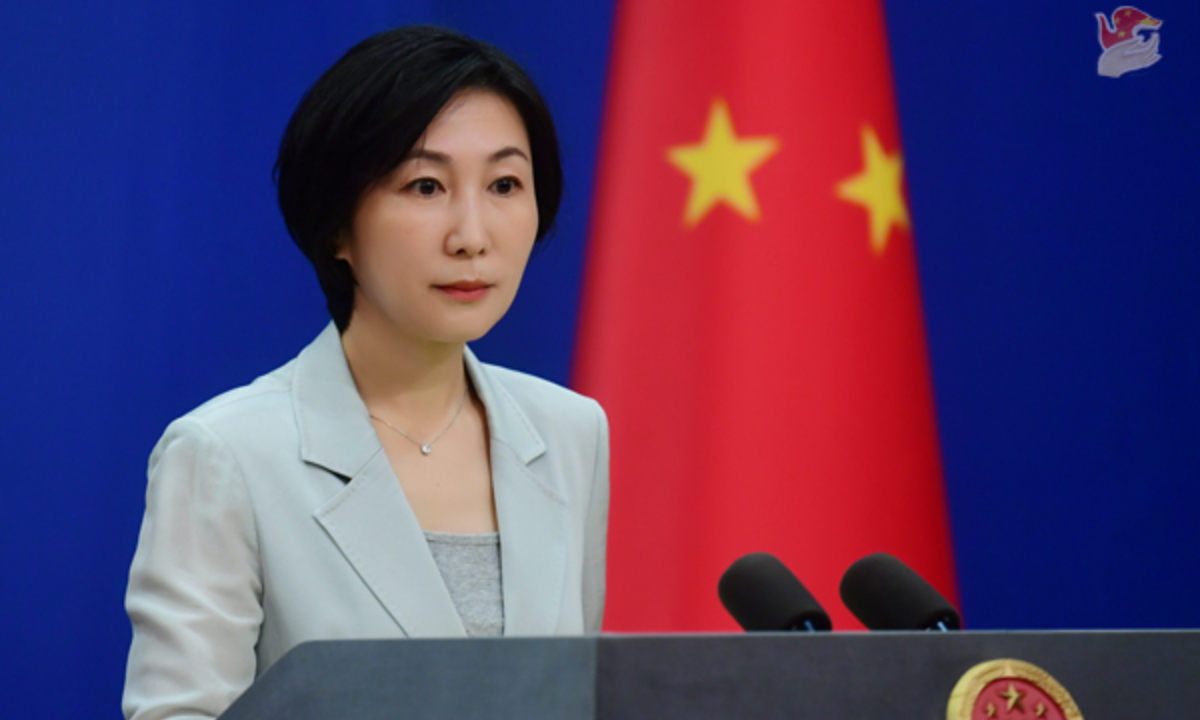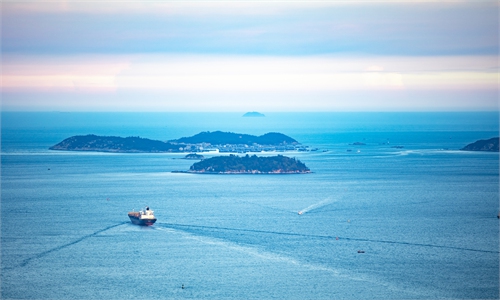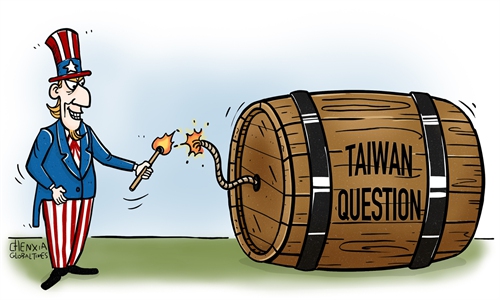Only by returning to the one-China principle can peace, stability across the Taiwan Strait be effectively ensured: Chinese FM

Foreign Ministry Spokesperson Mao Ning Photo: Ministry of Foreign Affairs
Only by returning to the one-China principle and the 1992 Consensus can peace and stability across the Taiwan Straits be effectively ensured, the Chinese Foreign Ministry said on Wednesday after a media report claimed the US is considering sanctioning China to "deter it from invading Taiwan."
Mao Ning, spokesperson of the Chinese Foreign Ministry, said at Wednesday's routine media briefing that the root cause of the current tensions across the Taiwan Straits is that the one-China principle has been challenged and the DPP authorities have kept pursuing the "Taiwan-independence" separatist agenda.
Mao said the Taiwan question is purely China's internal affair. No foreign country has the right to interfere with it. Mao's remarks came after a Reuters report claimed that the US is considering options for a sanctions package against China to "deter it from invading Taiwan," with the EU coming under pressure from the island of Taiwan to do the same.
Lü Xiang, a research fellow at the Chinese Academy of Social Sciences, told the Global Times on Wednesday that making noises and taking provocative actions on the Taiwan question are the US' tactics, and noise of US mulling over sanctioning China does not deserve China's attention.
The Reuters report did not mention any details of the potential sanctions; instead, it raised questions of their feasibility, as China, the world's second-largest economy, is "one of the global supply chain's biggest links."
Western media also reported that the US Senate Foreign Relations Committee is expected to have a markup of the Taiwan Policy Act on Wednesday.
Regarding the act, Mao stressed that the Chinese side has repeatedly expressed its firm opposition to the Taiwan Policy Act of 2022.
The US side needs to abide by the one-China principle and the provisions of the three China-US joint communiqués and stop advancing the relevant Taiwan-related act, Mao urged.
Mao said. "Only by handling Taiwan-related issues prudently and properly can further damage be prevented to China-US relations."
Lü said if the current version of the bill gets passed and is signed into law, it will completely upend the political foundation of China-US relations as the US will have created a de facto "one-China, one-Taiwan" through domestic legislation. Lü warned the US will have to face strong countermeasures from China in that scenario.
Hsiao Bi-khim, the island of Taiwan's representative to the US, reportedly hosted dozens of international lawmakers on Tuesday who are expected to sign a pledge to push their government to adopt "greater deterrence against military or other coercive" actions by China against the island, according to Reuters.
Analysts said that some European countries may follow the US on pressuring China over the Taiwan question, but they would not dare to take big steps.
The one-China principle is the political foundation for the establishment and development of diplomatic relations between China and other countries. China firmly opposes any form of official exchanges between the China's Taiwan region and countries having diplomatic ties with China, Mao said.
She said that The DPP authorities' attempt to collude with external forces in pursuit of the "Taiwan-independence" separatist agenda will only lead to a dead end. Only by returning to the one-China principle and the 1992 Consensus can peace and stability across the Taiwan Strait be effectively ensured.



